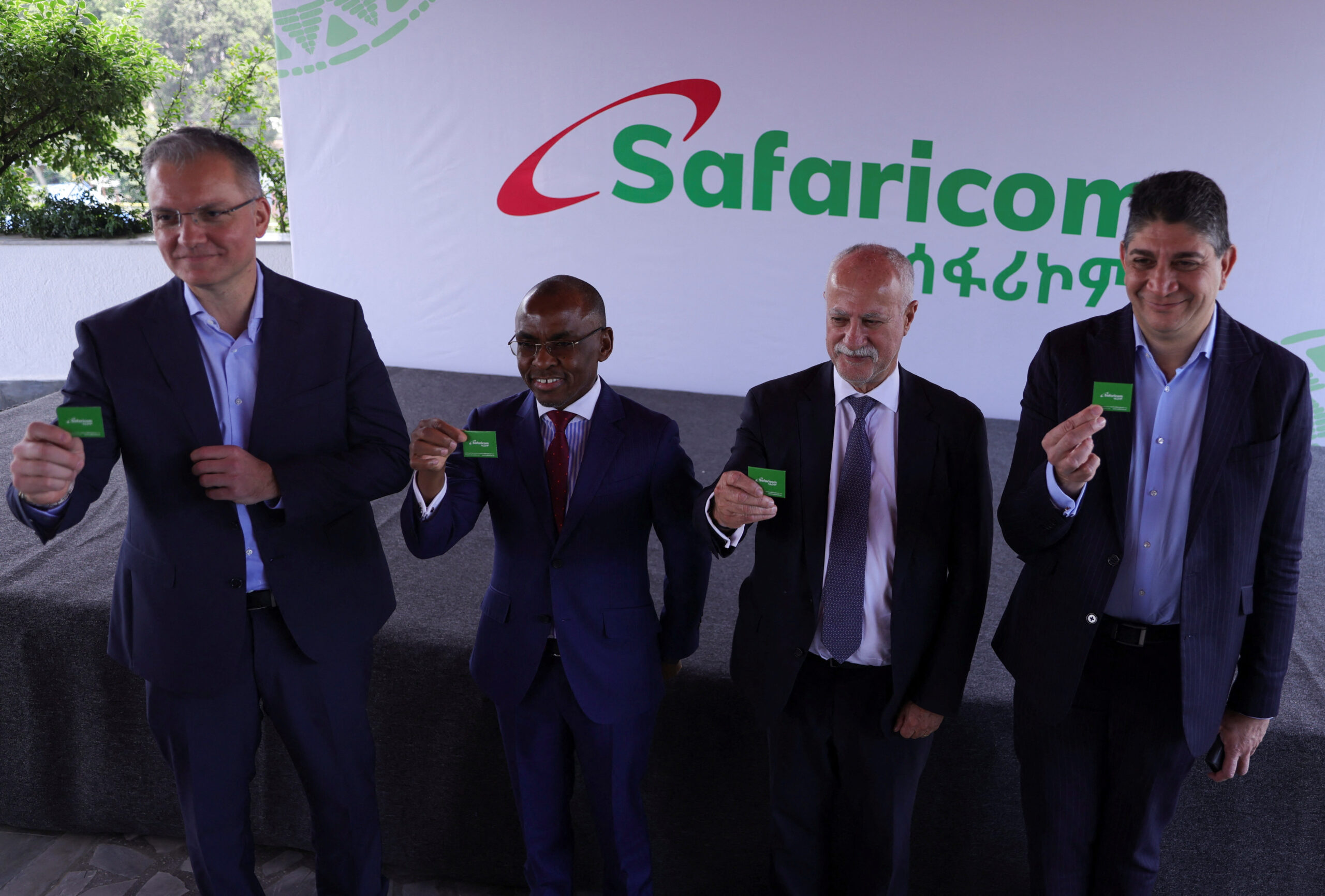Safaricom has appointed the group’s CEO, Peter Ndegwa, as Chairman of the Global Partnership for Ethiopia (GPE) Board to reorganise the leadership of its Ethiopian business.
Ndegwa replaced Michael Joseph, a seasoned executive who played a key role in the company’s entry into the liberalising telecoms market.
The Board changes were confirmed Sunday by the Nairobi-listed telecoms group, which is partially owned by South Africa’s Vodacom and Vodafone.
Ermias Eshetu appointed as first indigenous Board member
Along with elevating Ndegwa, Safaricom also appointed Ermias Eshetu, a seasoned executive with experience in both the public and private sectors of Ethiopia, as the first Ethiopian to serve on the advisory board of its local subsidiary.
In 2021, Joseph—a former long-time CEO and later chairman of Safaricom—was instrumental in obtaining Ethiopia’s first private telecom licence. This was one of the most significant changes in foreign direct investment in Ethiopia’s state-run economy since market reforms were introduced by Prime Minister Abiy Ahmed in 2018.
After paying over 850 million US dollars in upfront fees, the GPE consortium—which included Vodafone, Vodacom, Sumitomo Corporation of Japan, and British International Investment—was granted the licence. After state-owned Ethio Telecom had monopolised the market, Safaricom Ethiopia began offering commercial services in October 2022.
Safaricom’s fiscal year performance
The board reorganisations coincide with the start of commercial traction for Safaricom’s Ethiopian venture. Safaricom Ethiopia’s revenue increased by more than three times to 7.2 billion birr in the fiscal year that ended in March 2025 from 1.9 billion birr the year before.
According to company filings, the company’s customer base has almost doubled to 8.8 million, with 7.1 million of those customers being active data users.
The unit is still losing money, but its yearly operating losses decreased from KSh61 billion in FY2024 to between KSh23 billion and KSh26 billion (177 million and 200 million US dollars). According to the company, Ethiopia will be profitable by 2027.
Safaricom’s operational challenges in Ethiopia
As the organisation negotiates operational challenges in Ethiopia, such as currency depreciation, increased security threats, and regulatory uncertainty, it’s anticipated that Peter Ndegwa’s appointment will strengthen strategic continuity.
Due to the Ethiopian birr’s sharp devaluation, Safaricom had previously updated its earnings outlook, raising concerns about the repatriation of profits and dollar-denominated liabilities.
Safaricom’s future outlook in Ethiopia
The opportunity’s scope is still significant, though. With a population of over 120 million and one of Africa’s lowest rates of mobile penetration, Ethiopia offers Safaricom a promising future growth market.
Over half of the population is currently covered by the company’s 4G network, which has grown rapidly since its network launch. Customers now use an average of 6.5 GB of data per month, which is 53 percent more than they did a year ago.
In FY2025, nearly three-quarters of Safaricom Ethiopia’s revenue came from mobile data services. After obtaining regulatory approval, the operator also launched M-Pesa, its mobile money platform, in the Ethiopian market in August 2023.
Although adoption is still in its early stages, M-Pesa, which generates more than 40 percent of Safaricom’s revenue in Kenya, is regarded as a key component of the company’s long-term strategy in Ethiopia.











